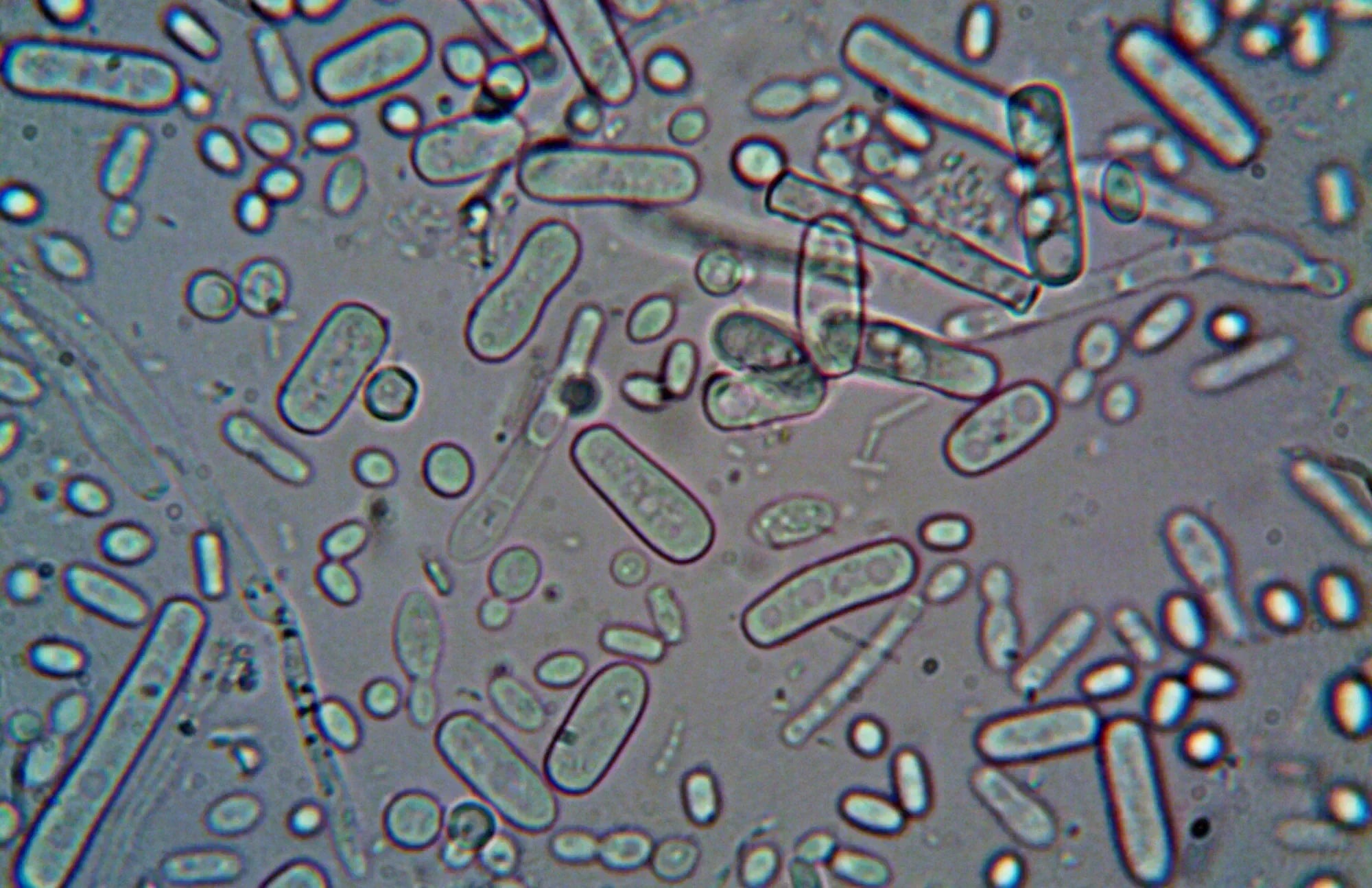Probiotic bacteria are live microorganisms that colonize the gut and fight off bad bacteria. Probiotics may be found in certain foods or can be taken in supplemental form, and are a crucial part of maintaining a healthy gut microbiome.
The word probiotics is derived from Greek and Latin, meaning “for life” which gives a good sense of what probiotics are and what they do. Probiotics are live microorganisms that have a positive effect on overall health when consumed. Elie Metchnikoff was one of the first scientists in the modern era to introduce probiotics to the scientific community in 1908 in his book “The Prolongation of Life”.
Since then, research has examined the effects of probiotics and suggests these beneficial bacteria support overall health and wellbeing.
Many types of good bacteria and even some yeasts can be classified as probiotics. Each probiotic strain has different functions and benefits. Some of the most common bacterial strains we eat belong to groups called Lactobacillus and Bifidobacterium (B. bifidum). These strains of probiotics may help with overall digestive health.
The most common yeast found in probiotics is saccharomyces boulardii (S. boulardii). This tropical yeast is associated with helping health conditions like inflammatory bowel disease (IBD), Crohn’s disease, diarrhea, and other gastrointestinal concerns.
Probiotics and Digestive Health
There are trillions of microorganisms (mainly bacteria) in your body, and most of them live in your intestines, also called your gut microbiota.
The microbiota is unique to you and is dynamic based on the foods you eat, dietary supplements, medications, stress levels, and body weight. Plus, several lifestyle factors, like stress, smoking, or excessive alcohol consumption, negatively affect your gut bacteria, which is one reason we see an increase in digestive health issues.
The overall balance and diversity of bacteria in your microbiota affect the health of your digestive tract and body.
Changes to the gut microbiome are associated with changes in digestion, infections, inflammation, inflammatory bowel disease, and irritable bowel syndrome (IBS). Probiotics can help restore gut health by adding good bacteria to your microbiota.

Probiotics Beyond Digestive Health
Your gut microbes are key to many processes and aspects of health. They support your immune system, metabolism, brain functioning, as well as your digestion.
Current research confirms the connection between gut health and brain health, a relationship called the gut-brain axis. The two are linked through the nervous system in the digestive tract and the central nervous system in the brain.
What affects the gut also affects the brain and vice versa, which is why when someone has chronic gastrointestinal issues they’re at a higher risk for anxiety and depression. Initial research has found that probiotics may help support mental health through the gut-brain axis.
We are still learning about the benefits of probiotics on digestive health. But we see probiotics can have beneficial effects on the digestive system.
For some with chronic digestive issues, eating foods that are high in probiotics may be a struggle. Probiotic supplements can play an important role to help restore and maintain digestive health. The key to any probiotic is to find the right probiotic for you, which may take a little trial and error experimenting.
In addition, you’re more likely to get positive results if you consume the right kinds of probiotics in sufficient amounts and if the probiotics in your supplement reach your intestines alive. Factors such as the delivery mechanism, whether the product needs to be refrigerated and the quality of ingredients determine the survivability of the bacterial strains.
For best results, it is a good idea to opt for a targeted probiotic formulation. Some supplements may be effective at dosages of 1-2 billion colony-forming units (CFU), while in other strains you’ll need a higher dosage. As with all supplements, talk with your healthcare provider to determine your specific supplement needs.
You may also consider adding prebiotic fiber to your diet to complement the live bacteria. Taking a probiotic product along with prebiotics can cause "synbiotic" effects where the two supplements support one another for even greater benefits.

Common Types of Probiotics
There are more than 500 different kinds of probiotic species, according to Harvard Medical School. Each probiotic is identified by its unique strain, which is named first by its genus, then by the species, and then by their strain (e.g. Lactobacillus casei W56). The microbes in the genus share genetics but each species and strain have a variety of genes.
Different probiotic species and strains perform different functions in the body. That’s why it is so important to choose a probiotic supplement that mindfully combines the probiotic strains and clinically tests the products for efficacy.
You’ll most likely see probiotics listed by their genus and their species or by their strain nickname. But it’s helpful to have a basic understanding of probiotics classification so you spend your money on a probiotic supplement or probiotic food that will actually help you.
Naturally Occurring Probiotics
Lactobacillus: Lactobacillus is a very common bacteria and belongs to the group of lactic acid. These beneficial bacteria live in our digestive and urinary systems and are found in fermented foods, like sourdough. Lactobacilli have multiple functions, depending on the specific strain. The two most common roles are to produce lactic acid rapidly and to break down carbohydrates, such as lactose.
Lactic acid helps prevent harmful bacteria from colonizing the intestines and helps protect the lining of the intestines.
Bifidobacteria: One of the most important types of bacteria in the body, bifidobacteria help digest dietary fiber, prevent infection, and produce vitamins. Researchers have found nearly 50 species of these y-shaped bacteria.
Bifidobacteria play an important role in early life. A baby’s gut microbiome may be 60% bifidobacteria, which helps to digest the healthy sugars in breast milk. Later on in life, bifidobacteria may help prevent colorectal cancer.
Healthcare professionals have also recommended bifidobacteria probiotics to help with constipation, diarrhea, and inflammatory bowel disease.
Saccharomyces Boulardii: This yeast is not the type of yeast you find in your kitchen but comes from plants, such as lychee and mangosteen. Several studies have found it helps manage gastrointestinal diseases.
Saccharomyces boulardii may interfere with the cellular pathways that cause inflammatory conditions, such as diarrhea, Crohn’s disease, and ulcerative colitis.
Unfortunately, proper doses have not been established because different doses of Saccharomyces boulardii have been used across the studies. Even with the different doses, many studies have shown these are beneficial microorganisms for many acute and chronic diseases. A health care professional can help give you personalized advice based on your age, gender, and medical history.
Streptococcus Thermophilus: Streptococcus thermophilus is a conventional starter for dairy products that contain live cultures, such as yogurt. This probiotic rapidly converts lactose into lactic acid, which causes milk proteins to coagulate, resulting in yogurt. S. thermophilus also adds flavor and gives yogurt its texture.
This lactic acid bacteria may improve your ability to digest lactose and support digestion. Other studies have shown S. thermophilus stimulates the gut-brain axis, supports the immune system, and eases diarrhea.
Enterococcus Faecium: Enterococci are lactic acid bacteria that are highly tolerant of salts and acids, making them good starters for manufacturing cheeses. E. faecium supports immune functions and may help reduce certain infections. Studies have also shown it can treat diarrhea, irritable bowel syndrome, and help lower cholesterol levels.
There are still a lot of unknowns about this species of bacteria, especially for their applications as a probiotic.
Leuconostoc: Leuconostoc bacteria can produce lactic acid and are used in making some fermented foods. They’re used in milk products, like kefir.

Do I Need Probiotics?
When your gut’s bacteria levels are unbalanced, probiotics can help restore this healthy balance. Many modern lifestyle choices, such as stress, processed foods, and lack of physical activity, negatively affect gut bacteria levels.
Bacterial imbalance in the gut can lead to, first and foremost, digestive issues like constipation, diarrhea, bloating, and gas. Research shows that, in the long term, gut dysbiosis can contribute to brain fog, weaker immunity, detoxification issues, and chronic illness.
Think of probiotics as helping lay the foundation for overall wellness. They’re the good guys and you want them to outnumber the bad pathogens such as harmful bacteria, viruses, and fungi.
Taking a probiotic supplement can help optimize digestion. They may provide relief if you have a flare-up from gastrointestinal diseases, and studies have also shown that if you take a probiotic while taking antibiotics, you’re less likely to experience side effects like diarrhea.
Two ways to increase your probiotic intake are to eat probiotic foods and to take a probiotic supplement.
Many people can benefit from eating the following probiotic-rich foods:
- Cultured foods, including yogurt, kefir
- Fermented foods, such as sauerkraut, miso, tempeh, miso, and kimchi
- Picked vegetables, including pickles, onions
- Cultured and fermented beverages, kombucha, buttermilk
There are many types of probiotic foods that not only provide benefits from the probiotics but include other nutrients. Keep in mind to choose foods that note they contain active and live cultures. If you’re looking for cultured and fermented foods for their probiotic benefits, confirm that they are unpasteurized, as pasteurization kills the bacteria.
Probiotic supplements come as pills, powders, or liquids that contain live and active cultures. Some probiotic supplements have limited proof of efficacy, so it’s important to review the research and testing behind the product
Omni-Biotic probiotics are rooted in extensive research, testing, and clinical studies. We have a deep understanding of probiotic strain significance and how our strains perform synergistically for specific health outcomes. Each product is tested as a whole in double-blind, placebo-controlled, clinical trials, not just on a strain level.
Health Benefits of Probiotics
There is growing evidence that the benefits of probiotics start with gut and digestive health, and range far beyond that.
Research has shown that probiotics may be helpful for skin conditions such as eczema and acne, preventing the common cold, and reducing depression and anxiety.
Some studies even suggest that taking a probiotic supplement supports weight loss goals. The strains that seem to be most effective at supporting weight loss are Lactobacillus gasseri, Lactobacillus rhamnosus, and Lactobacillus rhamnosus and Bifidobacterium lactis combined.
Keep in mind, it’s not as simple as to take all these strains and call it a day. It’s most effective to choose a probiotic supplement where strains with certain strengths have been combined with other strains that work well together and then have been tested for impact in clinical trials.

Choosing the Best Probiotic for You
When choosing a probiotic dietary supplement, we recommend looking for a product that:
Contains live and active cultures that are naturally found in the human body. The product must have this listed on the label.
Include mindfully selected strains that have been tested in laboratory and clinical trials Certain probiotics have different functions, so it's helpful to look for formulations that address your health goals. For example, Omni-Biotic Stress Release is designed to support the gut-brain axis and the body’s stress response.
Is based on research, testing, and controlled clinical studies to show efficacy. Ideally, the product should also be free of common allergens, vegan, and include non-GMO ingredients.
Is manufactured in a way that ensures the probiotics arrive safely in your intestines where they can do their important work. For example, Omni-Biotic probiotics are made as a daily powder that you dissolve in water, which is much more effective than a probiotic pill or capsule.
A high-quality, multi-strain, and multi-species probiotic supplement can help you maintain a healthy balance of good gut bacteria, supporting gut health, optimal digestion, and overall wellbeing.
FAQ’S:
1. How do probiotics benefit gut health?
Probiotics support gut health by balancing the gut microbiota, enhancing digestion, and preventing the overgrowth of harmful bacteria. They also aid in nutrient absorption and bolster the immune system.
2. What are common probiotic strains?
Common probiotic strains include Lactobacillus and Bifidobacterium species, such as B. bifidum. These strains are often found in fermented foods and supplements.
3. Can yeast be a probiotic?
Yes, certain yeasts, like Saccharomyces boulardii, are considered probiotics. They are particularly associated with gastrointestinal health conditions such as inflammatory bowel disease and diarrhea.
4. Are probiotics safe to consume?
For most healthy individuals, probiotics are safe to consume. However, those with compromised immune systems or underlying health conditions should consult a healthcare provider before starting probiotic supplementation.
5. How can probiotics be consumed?
Probiotics can be consumed through fermented foods like yogurt, kefir, sauerkraut, and kimchi, or via dietary supplements in the form of capsules, tablets, or powders.
6. How long does it take for probiotics to work?
The time it takes for probiotics to show effects varies among individuals. Some may notice improvements in digestion and gut health within a few days to weeks of consistent use.
7. Can probiotics help with digestive issues?
Yes, probiotics can aid in alleviating digestive issues such as bloating, gas, diarrhea, and constipation by restoring balance to the gut microbiome.
8. Should probiotics be taken with food?
Taking probiotics with food may help protect the beneficial bacteria from stomach acid, enhancing their survival and effectiveness in the gut.
9. Can probiotics improve immune function?
Probiotics can support immune function by strengthening the gut barrier, modulating immune responses, and inhibiting the growth of harmful pathogens.




